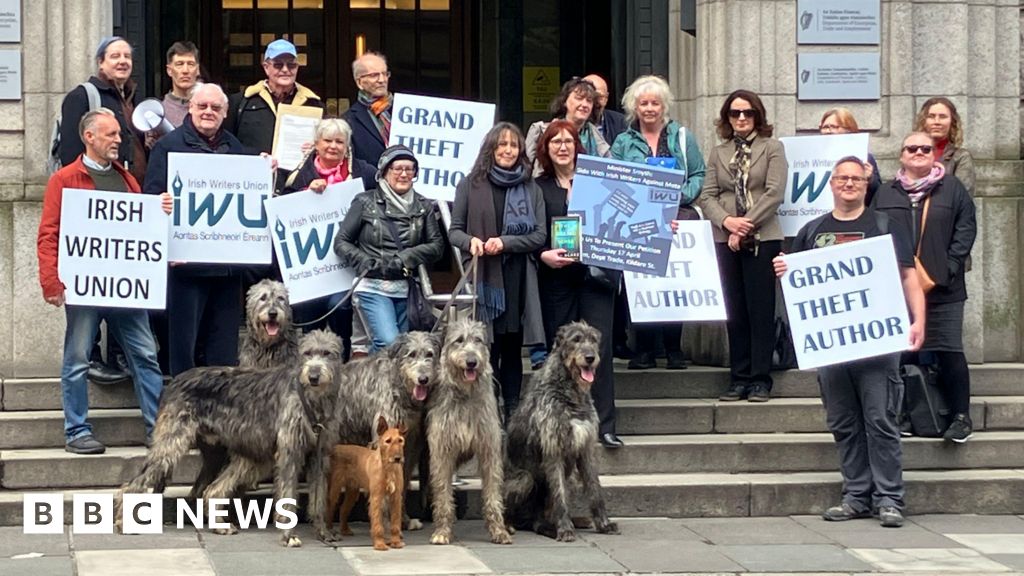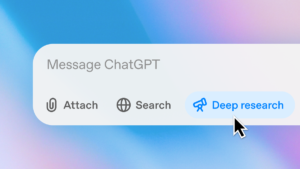Irish Wolfhounds Participate in Writer’s Protest

Irish Writers Protest Against AI Copyright Breaches
Background of the Protest
Recently, a group of Irish writers gathered outside the Dáil and Government buildings in Dublin to voice their concerns about what they call “piracy” of their literary works. This demonstration, orchestrated by the Irish Writers Union (IWU), aims to address the issues surrounding the use of copyrighted materials in training artificial intelligence models, particularly Meta’s AI model known as Llama 3.
The Demand for Copyright Compliance
The IWU, collaborating with Irish publishers, screenwriters, and poets, is pressing for Meta to adhere to both Irish and EU copyright laws when developing its AI systems. Their call for compliance follows unsettling information that emerged from a legal case in the United States, which revealed that Meta had reportedly utilized millions of copyrighted works without proper authorization for training its AI model.
Writers’ Perspectives
Authors like Audrey Magee, known for her books "The Colony" and "The Undertaking," expressed her shock at realizing that her publications had been included in AI training datasets without her consent. Magee highlighted the anxiety many writers feel about losing control over how their works are accessed and utilized by AI technologies.
The presence of Irish wolfhounds at the protest was not just a whimsical addition; it held deep symbolic meaning. These dogs have long been associated with Irish culture, literature, and legend. Their inclusion served as a reminder of the rich literary heritage the writers are fighting to protect.
Among the participating authors, Ruth O’Leary and Sam Blake also voiced their frustrations, stating that their writings have been misappropriated for AI training—fueling the call for stronger protection.
Union Leadership’s Stand
Conor McAnally, Chair of the IWU, emphasized the challenges writers face in earning a living from their craft. He criticized wealthy corporations for exploiting their works without fair compensation. He stated, "It is difficult enough to make a living as a writer without billionaires deciding it’s too inconvenient to pay for our work."
The IWU is committed to advocating for its members and is urging the Irish government to take action against Meta’s practices. Moreover, they have submitted a petition with 1,500 signatures to the Irish Department for Trade Promotion, Artificial Intelligence, and Digital Transformation, demanding accountability from Meta.
Government Response and Policy Adaptation
Minister Niamh Smyth TD acknowledged the rapid development of AI technologies and indicated that Irish and EU policies are evolving to tackle these new challenges. The government is aware of the issues raised by the writers’ union and is looking into establishing clearer guidelines.
Legal Actions and Licensing Demands
The IWU encourages its members to file formal complaints against Meta regarding the unauthorized use of their copyrighted materials. They are petitioning for an immediate halt in any AI training that includes their works until valid permissions are secured. Additionally, the writers are asking for fair and reasonable licensing agreements should Meta wish to utilize their literary creations in the future. They also seek compensation for any previous unauthorized usage of their works.
Investigation into Meta’s Practices
A report by The Atlantic has further deepened concerns, suggesting that Meta may have accessed a large number of pirated books and academic papers via Library Genesis (LibGen) to enhance its AI systems. In response to these allegations, a spokesperson for Meta stated that the company respects third-party intellectual property rights and believes its actions are compliant with existing laws.
The growing tension surrounding AI and copyright laws reflects a crucial moment in the literary and digital worlds, highlighting the need for clearer regulations and protections for creators.






